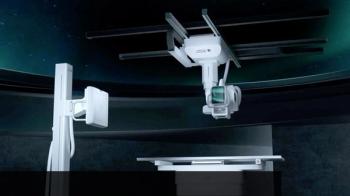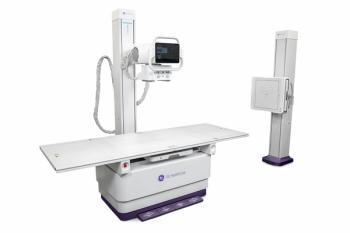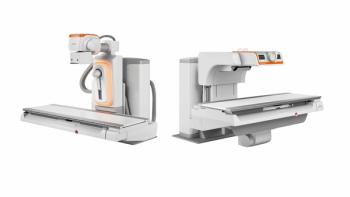
Fuji combines digital x-ray software application with convenience of PDA
Fujifilm Medical Systems has combined its customizable Flex UI digital x-ray software application with the convenience of PDAs to introduce the FCR Pocket ID at the RSNA meeting. With the Pocket ID, patient data can be accessed quickly and verified at the patient’s bedside, permitting caregivers to increase efficiency while reducing the potential for medical errors, according to the company.
Fujifilm Medical Systems has combined its customizable Flex UI digital x-ray software application with the convenience of PDAs to introduce the FCR Pocket ID at the RSNA meeting. With the Pocket ID, patient data can be accessed quickly and verified at the patient's bedside, permitting caregivers to increase efficiency while reducing the potential for medical errors, according to the company.
"By combining Flex UI with the benefits of the remote workflow of handheld PDAs, technologists will have the ability to access patient work lists and identify exposed imaging plates in cassettes from remote locations, such as patient rooms--which is a particular benefit for technologists doing portable exams," said Penny Maier, Fuji's national marketing manager for digital x-ray. "Pocket ID eliminates the need for paper notes or other means to identify the patient and type of exam, making it a valuable tool from both patient safety and technologist efficiency perspectives."
Patient safety is further enhanced when barcoded wristbands are available. Technologists can use the PDA's built-in barcode reader to scan the wristband, which highlights the name on their work list and ensures that they are performing the right exam for the right patient. They can also use ID cassettes at the bedside, confirming accurate identification at the time of the exam.
"The Pocket ID not only provides the potential for reduced medical errors but also reduces the steps required for technologists, easing their workload while providing benefits to patients," said John Strauss, Fuji's director of marketing for imaging systems.
Newsletter
Stay at the forefront of radiology with the Diagnostic Imaging newsletter, delivering the latest news, clinical insights, and imaging advancements for today’s radiologists.












